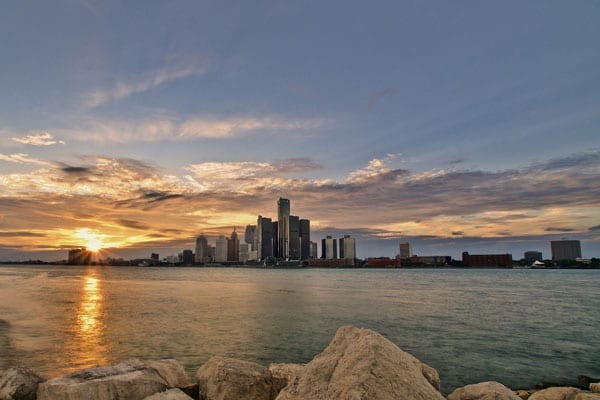Invoice Factoring is Simple Financing
Businesses more than ever need a simple, fast financing solution for today’s market. Invoice factoring, also called accounts-receivable financing, is a form of business financing that can deliver this to your company.
- Your business receives cash flow, in as little as 24 hours.
- Cash flow can be used to catch up on bills, payroll & more.
- You can accept new contracts without worry for insufficient working capital.
There’s no drawn-out approval process. Through our Sterling Heights invoice factoring programs, Scale Funding provides you the cash flow you need, and it grows as your business grows. Simple, right?

Did the Bank Say No? We Like Saying Yes.
Through our Sterling heights accounts-receivable financing programs, we are able to offer flexible financing solutions to businesses that cannot get a bank approval.
Even if you are able to get bank financing, it’s important to note some of the differences between partnering with Scale Funding and working with a bank for a loan or a line of credit:
Invoice Factoring |
Loan or Loan of Credit |
| Same-Day Funding | Funding Can Take Weeks |
| No Additional Debt Created | Debt Created on Your Balance Sheet |
| Free Collection & Credit Services | No Collection or Credit Services |
| Eliminates Wait on Customer Payment | Wait on Customer Payment Persists |
Industries We Serve
For over 20 years, Scale Funding has served businesses across North America. Part of the reason why we are your top choice among factoring companies in Sterling Heights is because we know many industries.

Oilfield Services
- Gravel Haulers
- Frac Sand Haulers
- Site Preparation
- More

Utility & Pipeline
- Utility Services
- Pipeline Construction
- Pipeline Maintenance
- More

Trucking & Freight
- Tanker Fleets
- Dry Van Carriers
- Heavy Hauling
- More

Telecom & Wireless
- Tower Installation
- Tower Erectors
- Tower Maintenance
- More

Heavy Construction
- Fabrication & Welding
- Environmental Services
- Bulk Material Handlers
- More

Technology
- IT Services
- Web Design
- Software Development
- More

Staffing Agencies
- Medical
- Administrative
- Clerical
- More

Renewable Energy
- Site Preparation
- Wind Farm Maintenance
- Solar Project Installation
- More

Government Contractors
- Federal, State & Local
- Security
- Transportation
- More

Other
- Apparel
- Distribution
- Wholesale
- Other
Sterling Heights, Michigan

The city of Sterling Heights is located in towards the southeastern edge of Michigan in Macomb County. As one of the core suburbs of Detroit, this quaint city enjoys an elevated socioeconomic status. According to the 2010 census, it has a population of just over 129,000. This makes it one of the largest suburbs in metropolitain Detroit, as well as the fourth largest city in Michigan.
The city enjoys a strategic location within this region. It sits on two major thoroughfares, namely the M-53 and M-59. Furthermore, it is also only 16 miles from downtown Detroit. This makes it easy for people to commute to and from work via various state and local highways. The city is also renowned for its low crime rate, making it one of the safest cities in the state.
Sterling Heights occupies an approximate area of 36.8 square miles. It is located within the Clinton watershed, with a number of the river’s tributaries flowing through the city. A combination of lush landscapes, beautiful river scenery and a balmy climate has made Sterling Heights one of the most desirable places to live, work and play in in Michigan.
History
The first people to inhabit the area now known as Sterling Heights lived in the fertile area along the river more than 11,000 years ago. Furthermore, archaeologists have discovered artifacts that point to the Paleo Indians living in the area from as early as 9,000 B.C. This discovery remains Sterling Heights’ greatest historical find to date. These early inhabitants survived by hunting mammoth, caribou and mastodons.
The Clinton River continued to play a pivotal role in the development of this area. The initial Native American inhabitants called it “Nottawaseppi” before its name was changed to Huron River, and later Clinton River in 1824. The area started out as a booming agricultural settlement, with farmers taking advantage of the rich soils along the river. By 1832, the settlement had grown into a recognized township and established a thriving industry from 100-acre corn and wheat farms, as well as rearing sheep, cattle and horses.
By 1880, Sterling Township had grown to be a thriving rural area with a population of just over 2,000 people. The arrival of the Romeo and Utica Stage Line made traveling to larger settlements in the surrounding area safer and easier. This convenience of both waterway and railway transportation also spurred further development of the township.
In the mid-1950’s successful manufacturers began looking for viable opportunities outside Detroit. Their search led them to Sterling Township, and large-Scale industries started setting up shop in the area. Early entrants included iconic brands like the Ford Motor Company, Briggs Manufacturing, LTV Missile Plant and Chrysler Corporation.
As a result, many plant workers moved into Sterling Township to take advantage of these emerging opportunities. This led to the development of numerous “dream communities,” like Dresden Village, in subdivisions within the township, complete with plans for opulent housing and rail transportation. However, the boom soon led to various challenges such as inadequate drainage systems and battles over land.
Ironically, the latter led to a massive expansion for Sterling Township. Residents were opposed to incorporating portions of the town into large cities like Warren, Moravian Hills and Dresden. This led to a name change for the town to Sterling Heights, and its official incorporation as a city in 1968. This change in status led to the development of master plans, zoning and development plans, infrastructure like roads and sanitary sewers and crucial services like the police and fire departments.
Today, Sterling Heights is considered one of the premier parts of the greater Detroit Metro area. Families love it because it is a safe, friendly place to raise children within range of good schools. The city also offers world-class services and amenities while maintaining a low rate of taxation. Furthermore, it has won numerous accolades, including Money Magazine’s Top 20 “Best Small Cities” to live in.
Leisure and Recreation
Sterling Heights is renowned for an extensive system of exceptionally lush parks. Each park offers a wide array of activities, including sports fields, playgrounds, concession stands, picnicking areas, skate parks and much more. Great examples of peaceful city parks that offer activities for the whole family include Beaver Creek Park, Avis Park, the Children’s Garden and Clinton River Park North. The city is also famous for its scenic jogging, hiking and biking trails. These can be found in facilities like the famous Chapelle Park, Arlingdale Park and Carpathia Park.
This city also has a wealth of shopping opportunities. You can find a large variety of boutiques, malls, shopping centers and retail outlets peppered throughout the Sterling Heights. The most well-known shopping mecca here is the historic Lakeside Mall, which contains numerous branded and department shops. However, numerous other malls and shopping areas can be found here, including the Countryside Craft Mall and Antiques, New York & Company, Lush Cosmetics and many more.
Sterling Heights also offers a wide range of dining options to suit any palate. Start by getting breakfast or a cup of coffee at Coco Bean Creamery and Café or the Old House Family Restaurants. You can then go out for lunch at Johnny Black’s Publichouse, Alie’s Lebanese Grill, or Rogers’ Roost. If you are so inclined, you can then sample the city’s vibrant nightlife at a variety of trendy venues like Jamboozies Sports Bar and Grill or the MJR Marketplace Digital Cinemas.
COMMON QUESTIONS
